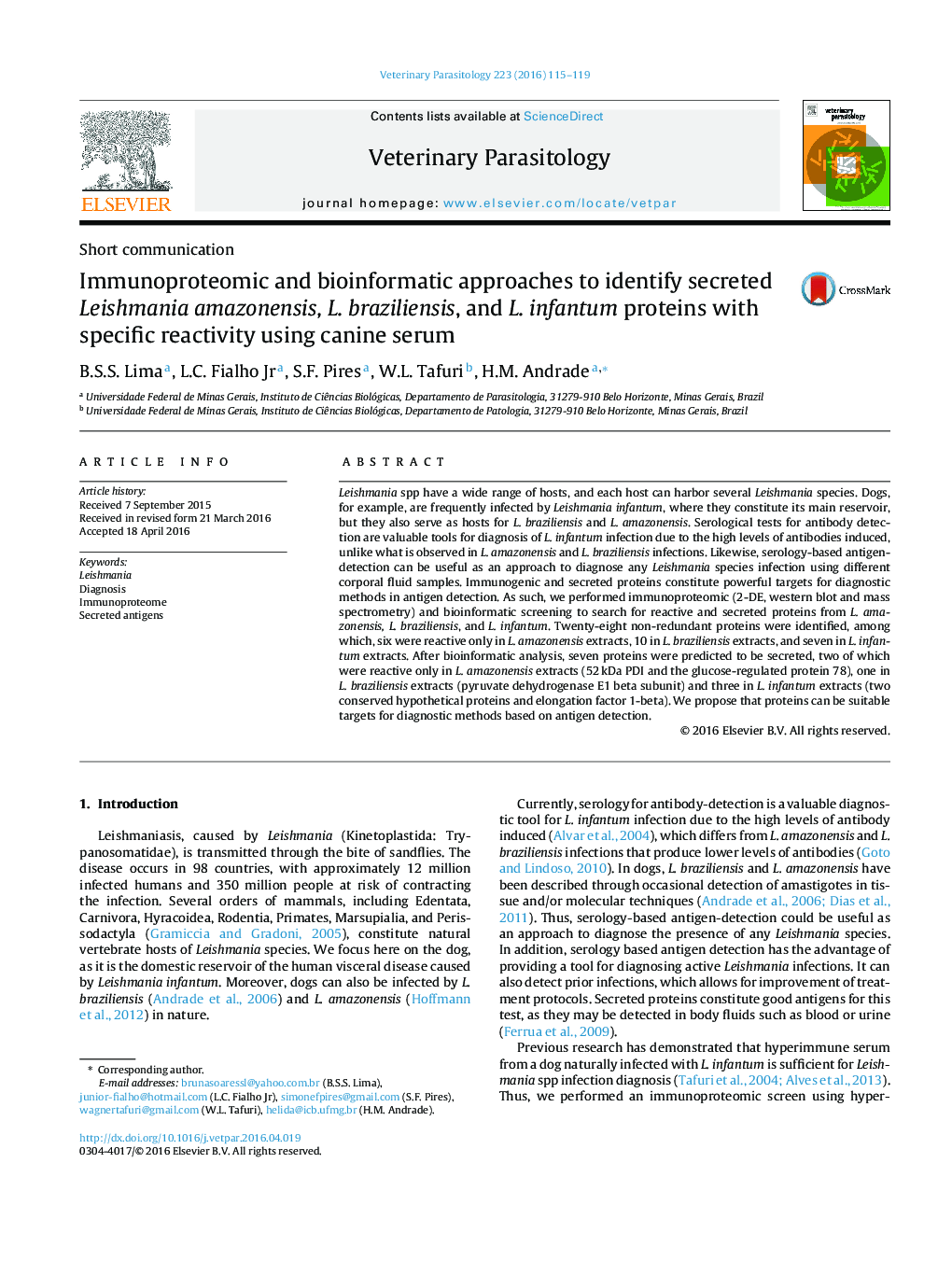| Article ID | Journal | Published Year | Pages | File Type |
|---|---|---|---|---|
| 2469804 | Veterinary Parasitology | 2016 | 5 Pages |
•Immunoproteomic approaches was used to identify reactive proteins in Leishmania spp.•Twenty-eight non-redundant immunogenic proteins were identified.•Bioinformatic analyses highlighted six putative secreted proteins with specific reactivity.•These proteins may be used as targets for diagnosis of Leishmania infection.
Leishmania spp have a wide range of hosts, and each host can harbor several Leishmania species. Dogs, for example, are frequently infected by Leishmania infantum, where they constitute its main reservoir, but they also serve as hosts for L. braziliensis and L. amazonensis. Serological tests for antibody detection are valuable tools for diagnosis of L. infantum infection due to the high levels of antibodies induced, unlike what is observed in L. amazonensis and L. braziliensis infections. Likewise, serology-based antigen-detection can be useful as an approach to diagnose any Leishmania species infection using different corporal fluid samples. Immunogenic and secreted proteins constitute powerful targets for diagnostic methods in antigen detection. As such, we performed immunoproteomic (2-DE, western blot and mass spectrometry) and bioinformatic screening to search for reactive and secreted proteins from L. amazonensis, L. braziliensis, and L. infantum. Twenty-eight non-redundant proteins were identified, among which, six were reactive only in L. amazonensis extracts, 10 in L. braziliensis extracts, and seven in L. infantum extracts. After bioinformatic analysis, seven proteins were predicted to be secreted, two of which were reactive only in L. amazonensis extracts (52 kDa PDI and the glucose-regulated protein 78), one in L. braziliensis extracts (pyruvate dehydrogenase E1 beta subunit) and three in L. infantum extracts (two conserved hypothetical proteins and elongation factor 1-beta). We propose that proteins can be suitable targets for diagnostic methods based on antigen detection.
